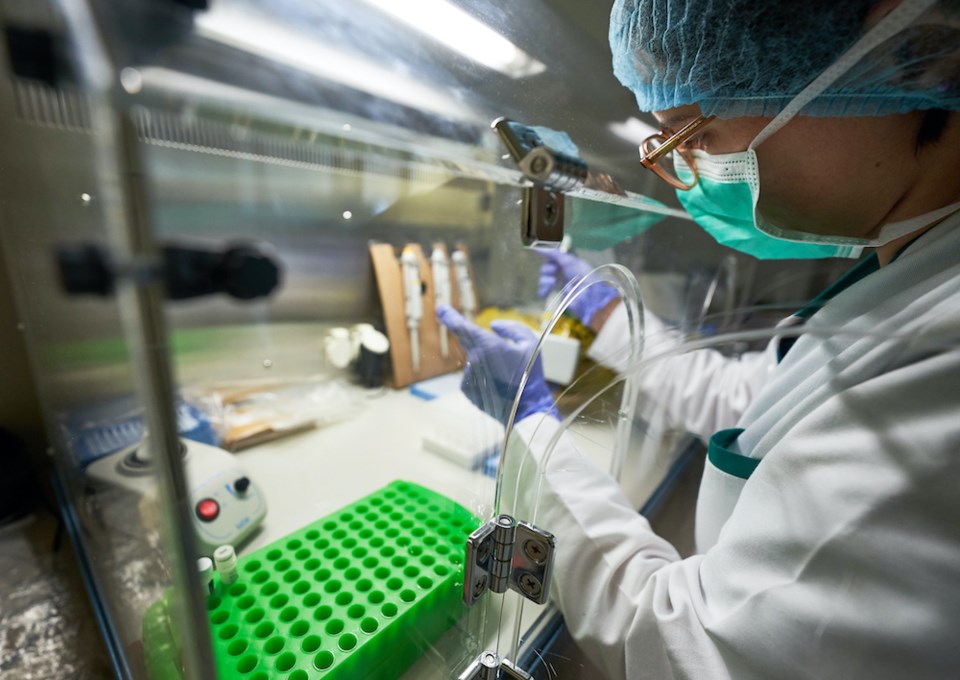The spread of a new subvariant of the highly transmissible Omicron coronavirus strain has sparked concern across the globe -- but a Vancouver expert says the traditional safety precautions will help to slow its spread in B.C.
Nicknamed the "Kraken variant," the XBB.1.5 strain has been quickly spreading across parts of the United States, most notably New York, Dr. Sarah Otto, a professor in the Department of Zoology at the University of British Columbia (UBC), told Vancouver Is Awesome.
While 24 copies of the recently-detected subvariant have been posted in the Global Initiative on Sharing Avian Influenza Data (GISAID) in Canada, the lineage has a "mutation (S: F486P) that is spreading rapidly in other jurisdictions," she explained.
"That mutation is interesting because it bears two changes in the DNA code, relative to the Wuhan ancestor, at position 486 in the spike protein, allowing this strain to 'reach further,' combining both high binding efficiency to the ACE2 receptor on our cells, while also masquerading from our immune system."
Scientists haven't noticed a significant change in symptoms with XBB.1.5 but it is showing a "transmission advantage," said Otto.
With this advantage, the new sub-variant is expected to continue the turnover in variants that have led to "high and fairly constant levels" of COVID-19 in Canada across the past six months.
To slow its spread, the long-standing COVID-19 rules apply: get your booster shot when you can, wear a mask in cozy or crowded indoor environments, and invest in improved air ventilation systems.
British Columbia's health minister says he supports Ottawa's decision to temporarily require people flying from China, Hong Kong and Macao to test negative for COVID-19 before leaving for Canada, beginning in early January.
Adrian Dix says in a news release that the province will continue to closely monitor the COVID-19 situation around the world while working with its federal partners to ensure the public is protected and informed.
V.I.A. has reached out to the Ministry of Health for additional comment.
With files from the Canadian Press.




